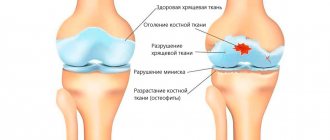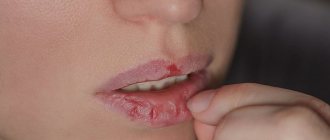Reasons for development
The following factors can lead to the development of pathology:
- Congenital anomalies. These include incorrect location of the ureter or its entry into the bladder, as well as the arteries of the kidneys and their branches
- Inflammatory processes in the bladder and ureter
- Urolithiasis disease
- Tumor-like formations in the pelvis
Call now
(495) 7 800 500
Leave a request
You will receive an automatic call back, wait for the operator to respond.
* By clicking the “Order a call” button, you agree to the processing of your personal data by JSC Group
Policy regarding the processing of personal data Consent to the processing of personal data
Make an appointment
Types of disease
Highlight:
- Unilateral hydronephrosis
- Bilateral hydronephrosis
In the first case, the pyelocaliceal complex is affected only on one side, in the second - on both sides. Unilateral damage usually occurs against the background of congenital narrowing, conflict with abnormal renal vessels, as well as urolithiasis. The cause of a bilateral process can be stones, tumors or prostate adenoma.
The doctor knows how to treat kidney hydronephrosis at one stage or another. It is only important for the patient to contact a specialist as soon as possible.
General information
Nephritis is a group of kidney diseases of an inflammatory nature. There are two main forms in children: hereditary and acquired.
The inflammatory process usually occurs in both kidneys of the child, spreading to the pyelocaliceal system, renal glomeruli and tubules. This disease can appear even in newborns; in medicine there is currently no consensus on what the mechanism of the onset and development of the disease is. Acute tubulointerstitial nephritis is usually provoked in children by a hereditary predisposition, accompanied by infection and allergies. Source: N.I. Khlebovets Tubulointerstitial nephritis in children // Journal of Grodno State University, 2014, No. 1, pp. 94-97
Stages
There are 3 stages of renal hydronephrosis:
- Initial.
At this stage, the pelvis gradually expands. Kidney function is not affected - Stage of pronounced manifestations of the disease.
At this stage, the pelvis and calyces are involved in the pathological process, the functioning of the kidneys is disrupted due to compression of their tissues - Terminal stage.
It is characterized by atrophy of kidney tissue. Both chronic renal failure and complete loss of kidney functionality may occur.
The doctor knows how to treat kidney hydronephrosis at one stage or another. It is only important for the patient to contact a specialist as soon as possible. With early diagnosis, the chances of a full recovery are the highest!
Main symptoms
Most patients complain of the following manifestations of hydronephrosis:
- severe pain in the lower back and abdomen, which can radiate to other parts of the body
- increase in body temperature
- weakness
- chills
- the appearance of blood clots in the urine
- headaches and increased blood pressure
- there may be a completely asymptomatic course when the pathology is present from birth and the body has adapted to it
The more advanced the disease, the more pronounced its symptoms become.
The more advanced the disease, the more pronounced its symptoms become.
Important! Body temperature rises when the disease is accompanied by an infection. In this case, it is very important to carry out immediate treatment.
Symptoms of hydronephrosis may also include bloating, constant nausea and severe vomiting, increased fatigue with decreased performance.
In children, signs of the disease include:
- cloudy urine
- reducing the amount of daily urine
- pain
Like adults, children complain of weakness, headaches, and nausea. Parents should pay close attention to the child’s health if he refuses his favorite food, games, walks, becomes lethargic and sleeps a lot.
Competent treatment of kidney hydronephrosis in an adult or child is impossible without a high-quality comprehensive examination.
Drugs that kill kidneys
Potentially dangerous drugs include the following: 1. Analgesics , especially those based on acetylsalicylic acid and non-steroidal anti-inflammatory drugs (Ibuprofen, Aspirin, Diclofenac). They are used to relieve pain and reduce fever. They contain codeine, a semi-synthetic substance extracted from morphine.
The component is highly soluble in both water and alcohol, so painkillers are available in the form of effervescent tablets, capsules, mixtures, ointments and gels.
Codeine affects the nervous system and smooth muscles like morphine, only ten times weaker. Thus, codeine suppresses the excitability of the parts of the nervous system responsible for cough, and also activates the anticicertic part of the nervous system, as a result of which pain is suppressed.
Thanks to drugs containing codeine, smooth muscles relax and peristalsis decreases. However, analgesics and non-steroidal anti-inflammatory drugs have an extremely negative effect on the kidneys. The parenchyma contracts and calcifies, causing disruption of the structure of the renal tissue.
Long-term uncontrolled treatment leads to the appearance of a large lesion caused by exposure to the active substance. For this reason, after treatment of ARVI, bronchitis, pneumonia, as well as frequent use of analgesics, you should definitely check your kidneys. Changes at the initial stage can be prevented by maintaining kidney functionality. 2. Antibiotics (Methicillin, Ciprofloxacin). They help the body overcome pathogenic bacteria, but they have a significant negative property - nephrotoxicity. This is the ability of certain substances to interact with the kidney parenchyma and change its structure.
Hemodynamics change (blood pressure inside the kidney), hemolysis (breakdown of red blood cells with the release of hemoglobin), and acid balance inside the organ change.
Penicillin-based drugs cause inflammation of the glomeruli. Antibiotics interfere with renal circulation, causing ischemia of the organ.
Aminoglycosides (Gentamicin-K, Streptomycin) are highly effective in the fight against gram-negative microorganisms (chlamydia, gonococci, spirochetes), but in combination with diuretics (diuretics) they cause kidney failure and are fatal. 3. Antiviral drugs (Acyclovir, Tenofovir). They are used in the treatment of herpes, HPV, AIDS, and other viral diseases. However, the active substances are extremely difficult to remove from the kidneys, so taking antiviral medications should be accompanied by drinking plenty of water. Drugs that lower blood pressure (Amlodipine, Torsemide, Captopril, Atenolol). Drugs for hypertension lead to vasodilation, and this in turn leads to the expansion of efferent arterioles - small arteries located in the walls of smooth muscles. This leads to an increase in intrarenal pressure.
Long-term use of large amounts of drugs for high blood pressure leads to kidney infarction and complete damage to the organ. 4. Psychotropic drugs . They affect the brain and central nervous system, and the situation is aggravated by the need for lifelong medication for mental disorders. People with this problem need to have their kidneys checked regularly, because psychotropics provoke the formation of cysts in the kidneys.
Anticonvulsants can also cause chronic urinary tract disease.
Diagnostics
Competent treatment of kidney hydronephrosis in an adult or child is impossible without a high-quality comprehensive examination. Only it allows you to determine the type of disease, the degree of organ damage and other features of the pathology.
Diagnostics include:
- clinical and biochemical blood tests
- Analysis of urine
- Kidney ultrasound
- X-ray examination of the kidneys
- CT and MRI
- cystourethrography
- radioisotope study (nephroscintigraphy)
Prices
| Name of service (price list incomplete) | Price |
| Appointment (examination, consultation) with a medical specialist, primary, therapeutic and diagnostic, outpatient (other specialties) | 1750 rub. |
| Consultation (interpretation) with analyzes from third parties | 2250 rub. |
| Prescription of treatment regimen (for up to 1 month) | 1800 rub. |
| Prescription of treatment regimen (for a period of 1 month) | 2700 rub. |
| Consultation with a candidate of medical sciences | 2500 rub. |
| Kidney ultrasound | 1700 rub. |
| Ultrasound scanning of kidney vessels | 2500 rub. |
Treatment methods
Therapy should be started as early as possible. It can be carried out by two main methods: medication and surgery. The choice of technique is made exclusively by the doctor. In this case, the specialist takes into account a number of factors, including: the degree of development of the disease, the functionality of the organ, age and other individual characteristics of the patient, the cause of hydronephrosis, etc.
Call now
(495) 7 800 500
Leave a request
You will receive an automatic call back, wait for the operator to respond.
* By clicking the “Order a call” button, you agree to the processing of your personal data by JSC Group
Policy regarding the processing of personal data Consent to the processing of personal data
Make an appointment
Conservative therapy
This treatment is aimed at eliminating pain, as well as fighting infection and preventing complications. It is very important to prevent the development of urolithiasis and kidney failure.
Doctors can prescribe drugs from the following groups:
- antibacterial
- uroseptic
- anti-inflammatory
Important! It should be understood that in most cases, conservative therapy does not get rid of the cause of the disease. It is aimed only at eliminating symptoms and does not allow the pathology to become chronic.
Therapy should be started as early as possible. It can be carried out by two main methods: medication and surgery.
Surgical interventions
Operations are performed to ensure normal urine flow and kidney function.
In case of serious disorders caused by obstructed urine outflow, the following is carried out:
- Stenting.
A stent, which is a flexible and thin tube, is placed in the ureter. It ensures the free flow of urine from the kidney to the bladder. The tube begins in the pelvis area and ends in the bladder. The indication for installation of a stent is the need to ensure the outflow of urine when the urinary tract is blocked. The stent is removed immediately after the cause of the blockage is eliminated - Nephrostomia.
This intervention involves a whole range of surgical techniques. The procedure is temporary and precedes a full-fledged surgical operation to eliminate hydronephrosis. When intervening in the area of the renal pelvis, drainage is inserted in the form of a catheter. The outer end of the catheter is connected to a urinal
Important! Both of these measures are temporary. They only ensure normal urine flow, but do not cope with the cause of hydronephrosis.
The pathology is eliminated exclusively by surgery.
Operations are performed to ensure normal urine flow and kidney function.
Today can be held:
- Laparoscopic interventions
- Manipulations using the da Vinci robot
Experienced doctors who know modern working methods try to carry out interventions using minimally invasive methods. This allows you to reduce the risks of various complications and shorten the patient’s rehabilitation period. Particular attention is paid to organ-preserving technologies.
Interventions are aimed at plastic surgery of the pelvis or ureter, removal of tumors, crushing stones or removing them from organs and cavities. If during the examination it is determined that the functioning of the kidney is partially or completely impaired, operations may be performed to remove it.
Important! Even after removal of the kidney, the patient can return to his normal life (with some restrictions in physical activity and nutrition).
Before starting treatment for kidney hydronephrosis in adults and children, an examination is carried out to assess the cause of symptoms, determine the degree of damage and other features of the course of the disease.
Where do acquired kidney diseases come from?
The kidneys bear a tremendous burden. In an adult, they pass about 120-200 liters of fluid daily. The organ has a large margin of safety, is resistant to infections and inflammation, but sometimes a person, unknowingly, causes harm and disrupts the functioning of the kidneys.
Many diseases are asymptomatic, so preventive medical examinations should not be ignored even if you feel well. Pain syndrome appears much later, when the disease becomes chronic and changes the functional abilities of the organ. Drugs cause a serious blow to kidney health. This is especially true for self-medication, when the patient takes medications on his own without first consulting a doctor.
According to statistics, only 40% of people with respiratory viral diseases go to medical institutions, and then mainly to apply for sick leave. The remaining 60% self-medicate based on the advice of friends and online recommendations.
However, a number of medications provoke the development of kidney diseases in a completely healthy person. Moreover, these are not some special drugs, but tablets that are available in every person’s home medicine cabinet.
Advantages of contacting MEDSI
- Experienced specialists.
Our doctors have all the skills and knowledge to treat renal hydronephrosis in adults and children. Specialists work in accordance with international standards and use organ-preserving techniques - Opportunities for comprehensive diagnostics.
Before starting treatment for kidney hydronephrosis in adults and children, an examination is carried out to assess the cause of symptoms, determine the degree of damage and other features of the course of the disease. We have modern expert-class equipment. It allows you to detect pathologies in the early stages - Individual therapy methods.
They are selected in accordance with the results of the patient’s examination, after analyzing laboratory and instrumental data - Gentle methods of surgical treatment.
The therapy uses the capabilities of endoscopy, microsurgery and laparoscopy. If possible, operations are performed through small punctures, including using robotic technologies - Modern hospital.
We have high-tech operating rooms with innovative equipment from leading manufacturers. In hospitals, patients are provided with balanced nutrition and round-the-clock care - Fast recovery after interventions.
Particular attention is paid to the new philosophy of patient management after surgery (fast track), which involves the fastest possible return to active life. - Comfort of visiting clinics.
They are located near the metro. This allows residents of any district of Moscow to visit MEDSI clinics. We made sure there are no queues so you don't have to wait long for an appointment
To undergo treatment for renal hydronephrosis in adults and children in our clinics, call (495) 7-800-500. Our specialist will answer all questions and offer a convenient time for consultation with a doctor. You can also make an appointment through the SmartMed app.
Specialized centers
- Standards of the International Association of Urology
- High-precision diagnostics using cutting-edge equipment
- Modern high-tech operating rooms and hospitals
More details







